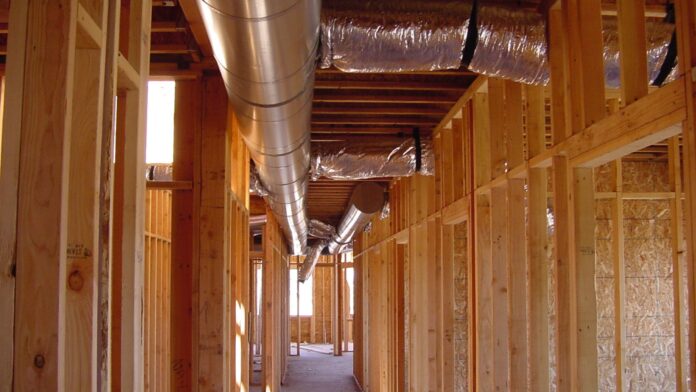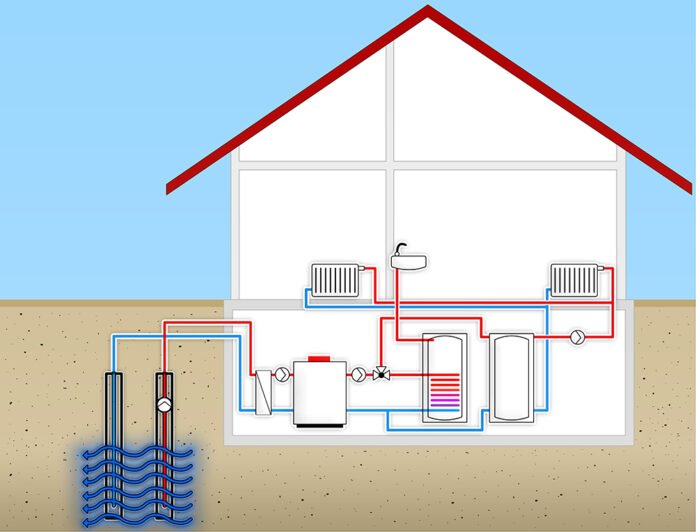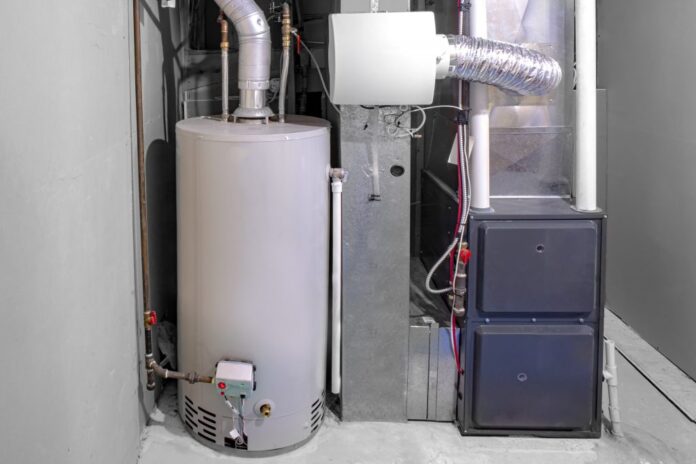Choosing the right heating system for your home is an important decision that often requires a lot of research. While there are several types of residential heating systems available, not all of them may offer the same level of energy efficiency. Energy efficiency is key in choosing the right heating for your home, as it can help you save money on energy costs over time.
Types of Residential Heating Systems

There are a variety of heating systems that homeowners can install in their residences to improve energy efficiency and create improved comfort levels for the occupants. The common types of residential heating systems include forced air, radiant, hydronic, and geothermal systems. Each type of system has specific advantages and levels of energy efficiency.
Forced-Air Systems:
They use warm air that is pushed through supply registers throughout a home’s living spaces in order to heat the home. Furnaces fueled by gas, oil, and electricity are common in forced-air systems while heat pumps, steam boilers, geothermal heat pumps, and dual-fuel hybrid heating systems have become more popular options as well.
Radiant Heating:
It utilizes hot water or electric-powered cables to provide heat directly throughout the interior space. The most important advantage of radiant heating is its efficiency; up to ninety percent of the energy used goes directly into warming a space rather than into running ductwork or losing energy out of improperly sealed windows or doors.
Another advantage is even distribution; there’s no cold draft from a vent due to soft non-drafty radiation providing even temperatures all throughout the house while eliminating hot and cold spots.
Hydronic Systems:
These are water-based and require some form of boiler which heats liquid before it is moved throughout your house with a pump or natural convection.
Boilers come in either classic models (oil/gas) or newer ones which use tankless on-demand technology only when needed during high-demand times like early mornings during winter which results in higher efficiency ratings than other traditional boiler models resulting in lower utility bills with fewer fuel costs per month on average than other types of long-term heating solutions.
Geothermal Heating:
It relies on subterranean temperature conditions below the ground level found several feet below the earth’s surface to deliver extremely efficient warmth from an eco-friendly method that uses less energy than conventional methods but at far greater efficiency ratings (up to 300%) for much longer lifespans since the equipment does not need frequent maintenance when installed professionally.
Cost Comparison

Installation costs vary greatly depending on the type of system chosen and may range from covering basic installation costs to more sophisticated systems that require more specialized installation processes.
The operating costs of a residential heating service can also have a big impact on its overall efficiency. The primary factor in these costs is fuel type—whether it’s electricity, gas, or another source. Other factors such as thermostat settings and maintenance requirements need to be taken into account as well when assessing operating cost efficiency.
Finally, maintenance requirements can also influence how efficient a residential heating system will be over the long term. More complex systems generally require more maintenance than simpler ones so it’s important to factor this into your decision—especially if you plan on using your existing HVAC contractor for servicing and repairs rather than hiring an outside technician or firm.
By taking into account all these elements when choosing a residential heating option, you can ensure that you select one that offers maximum energy efficiency both upfront and throughout its lifespan!
The efficiency of Different Systems

Consider the following options and their respective efficiency ratings to determine which type of system is best suited for your home:
- Electric furnaces are said to range in efficiency between 80%-99%. The higher the rating, the lower your energy consumption will be.
- Gas furnaces typically have an AFUE (Annual Fuel Utilization Efficiency) rating of up to 98%, which is much higher than that of an electric furnace.
- Boilers may reach up to 95% with proper maintenance, making them one of the most efficient types of heating systems available today.
- Heat pump – Perhaps one of the more efficient residential heating systems, heat pumps are known to maintain a level of energy efficiency of up to 97% when properly maintained and correctly installed by seasoned professionals. On the other hand, improper installation or maintenance can decrease its efficiency substantially, weighing down your monthly energy costs as well as comfort levels inside your home.
- Fireplace/woodstove insert – Fireplace inserts will vary depending on how they are configured and should be discussed with a professional before purchase or installation as some models may decline in efficiency quickly due to incorrect use or wear or tear buildup over time if not properly maintained and serviced routinely by trained professionals qualified in this field of work.
Maintenance Requirements

The first step is evaluating its maintenance requirements. Although central heating systems are typically the most energy-efficient option, they do require more maintenance than other types of residential heating systems and, if regular maintenance isn’t performed, they may end up costing more over the long run. This can range from yearly inspections to monthly filter changes and regular flue cleanings.
Most modern HVAC systems require much less frequent and basic maintenance, however, such as filter changes every several months and periodic preventative measure checks. Boilers must generally be flushed once every two to three years to maintain their performance efficiency; this involves draining all of the water from the system’s various pipes and reintroducing fresh water.
Furnaces with natural gas fuel (also known as fossil fuel furnaces) will likely require an annual tune-up as well as potential repairs as issues arise over time. Electric models are much less complex and have fewer parts; this type usually requires prompt replacement of filters but no other significant maintenance requirements exist beyond that basic task.
Additionally, oil furnaces must be checked for proper oil levels regularly—at least two to three times a year—and more often if you use a lot of oil due to daily heat demands or frequent temperature changes in your home’s environment.
Conclusion
Ultimately, the best choice for an energy-efficient residential heating system comes down to a homeowner’s preferences and budget. Heat pumps offer a great way to save on energy bills while also providing all the comfort of traditional electric furnaces.
Geothermal systems, while expensive upfront, are by far the most economical way to heat and cool a home. For those who don’t have access to geothermal energy sources, installing a dual fuel system or electric resistance heating may be more cost-effective. As always, when in doubt, it may be best to focus on the proper maintenance of any existing system instead of attempting to replace it outright.




